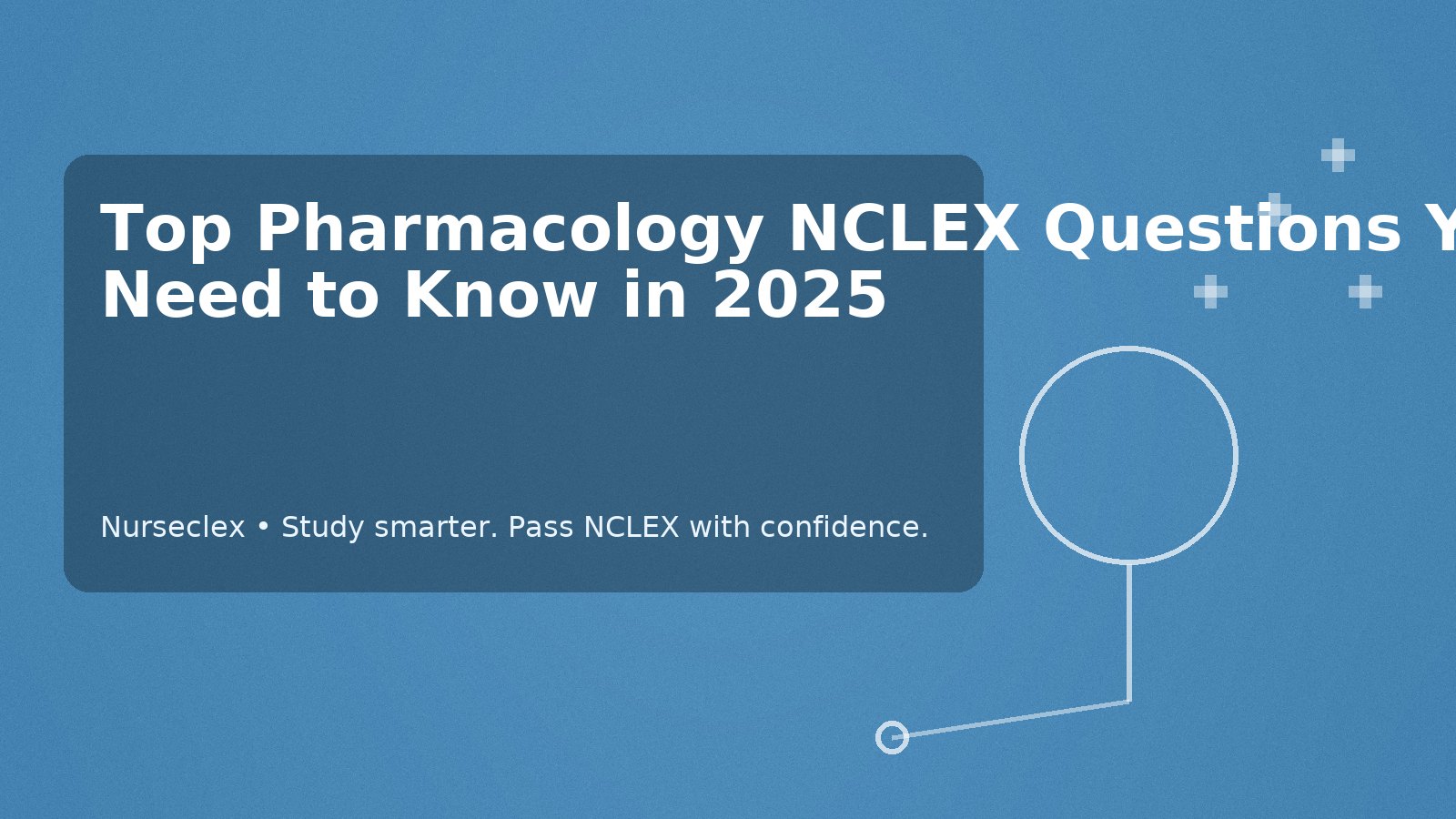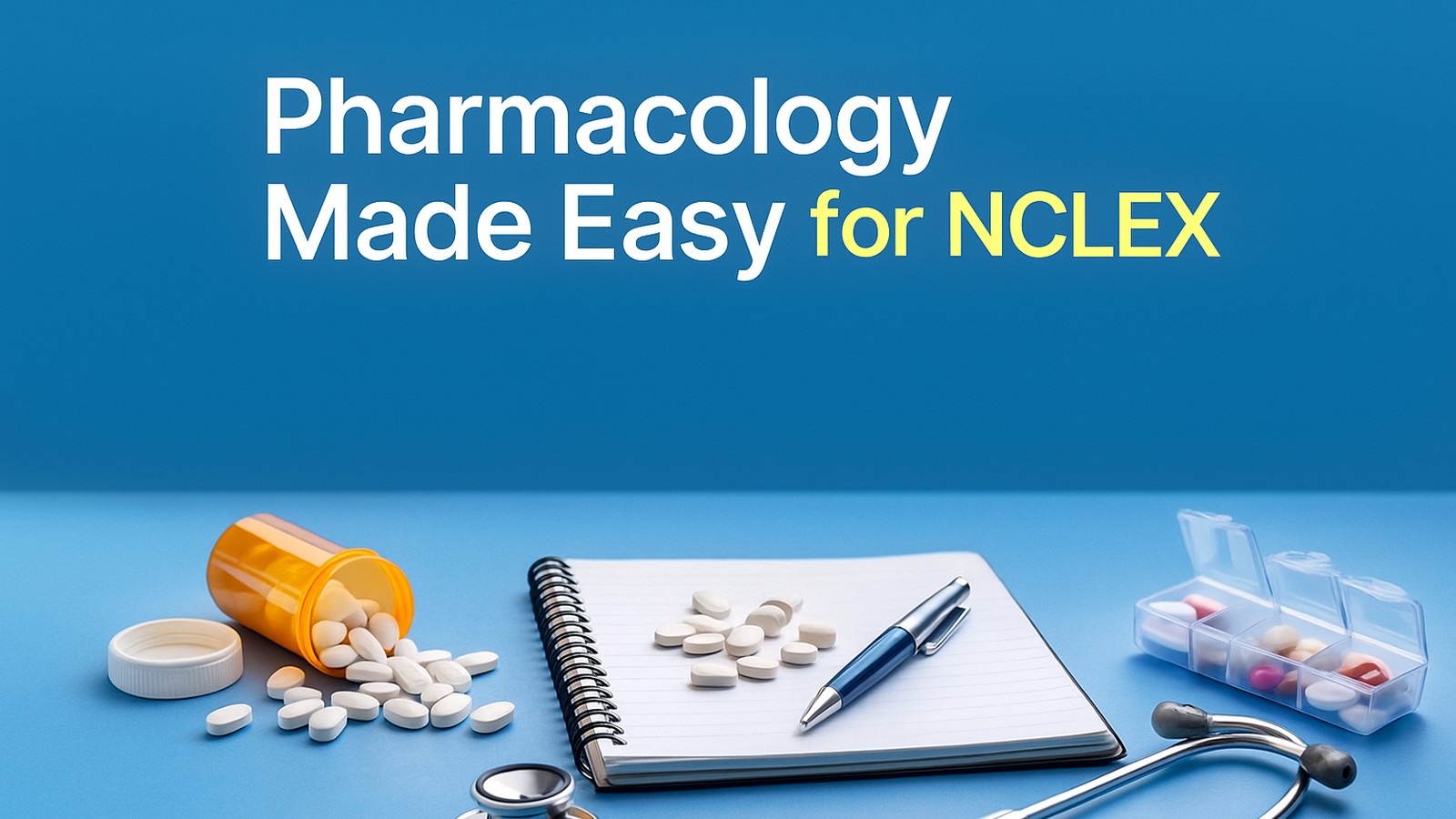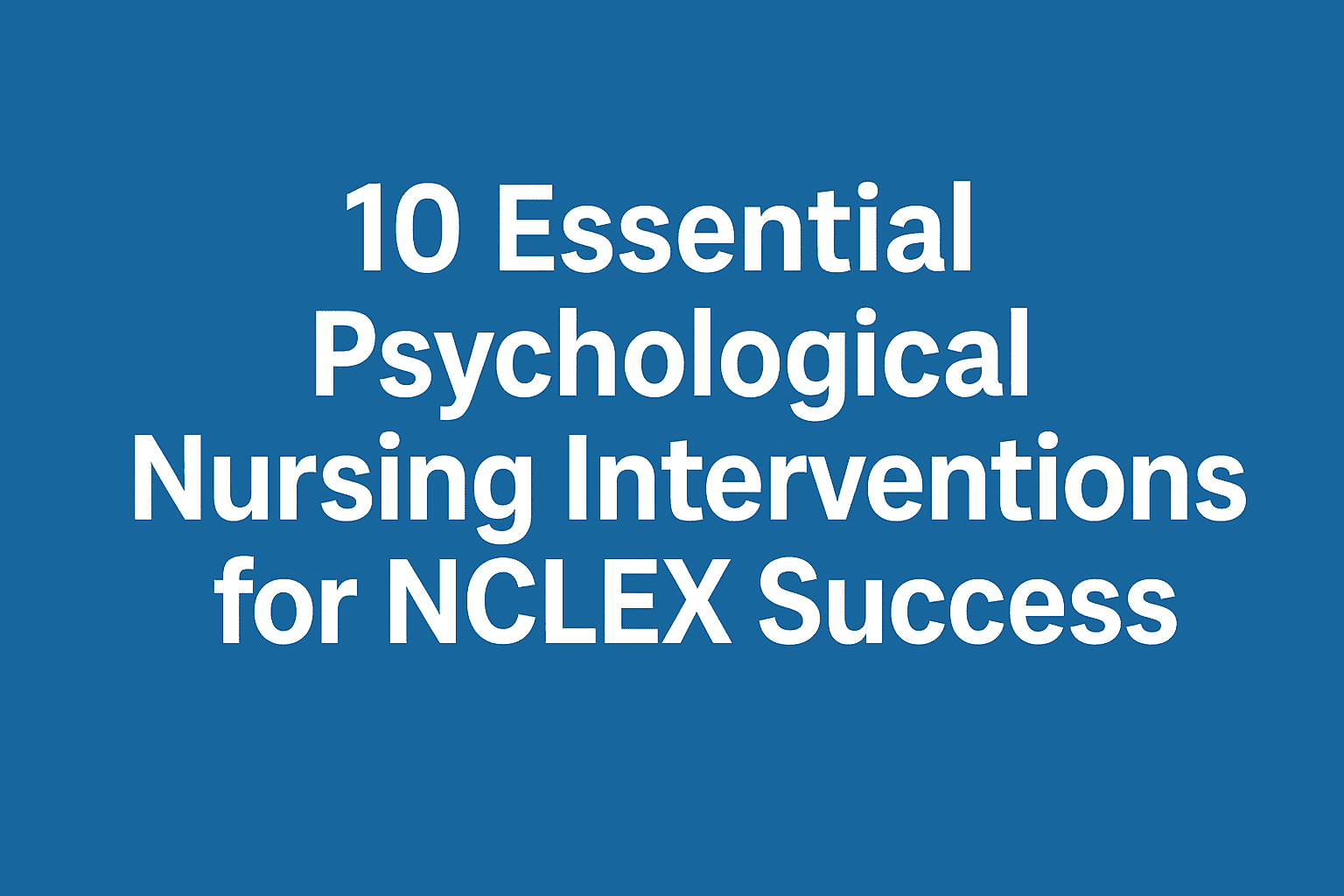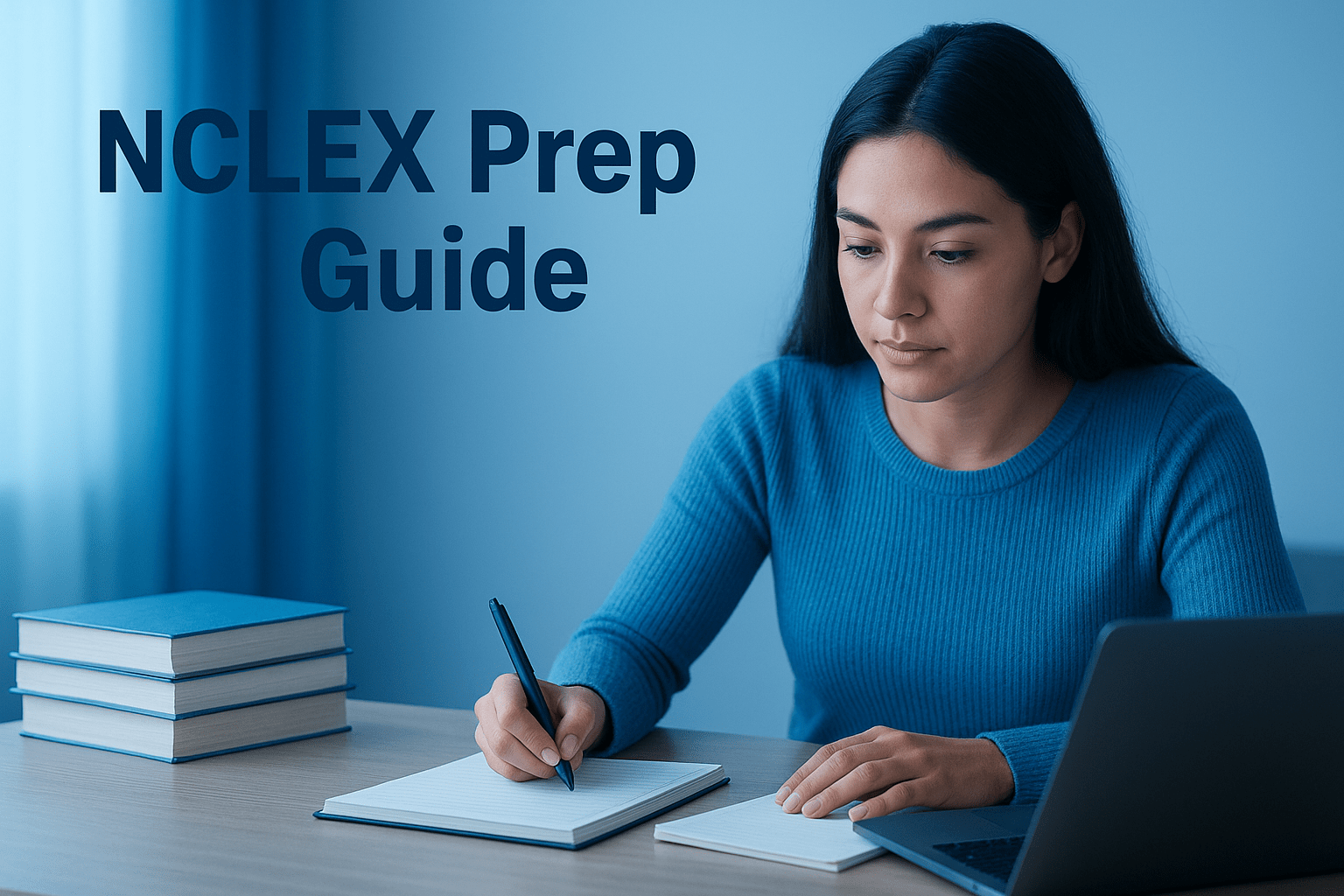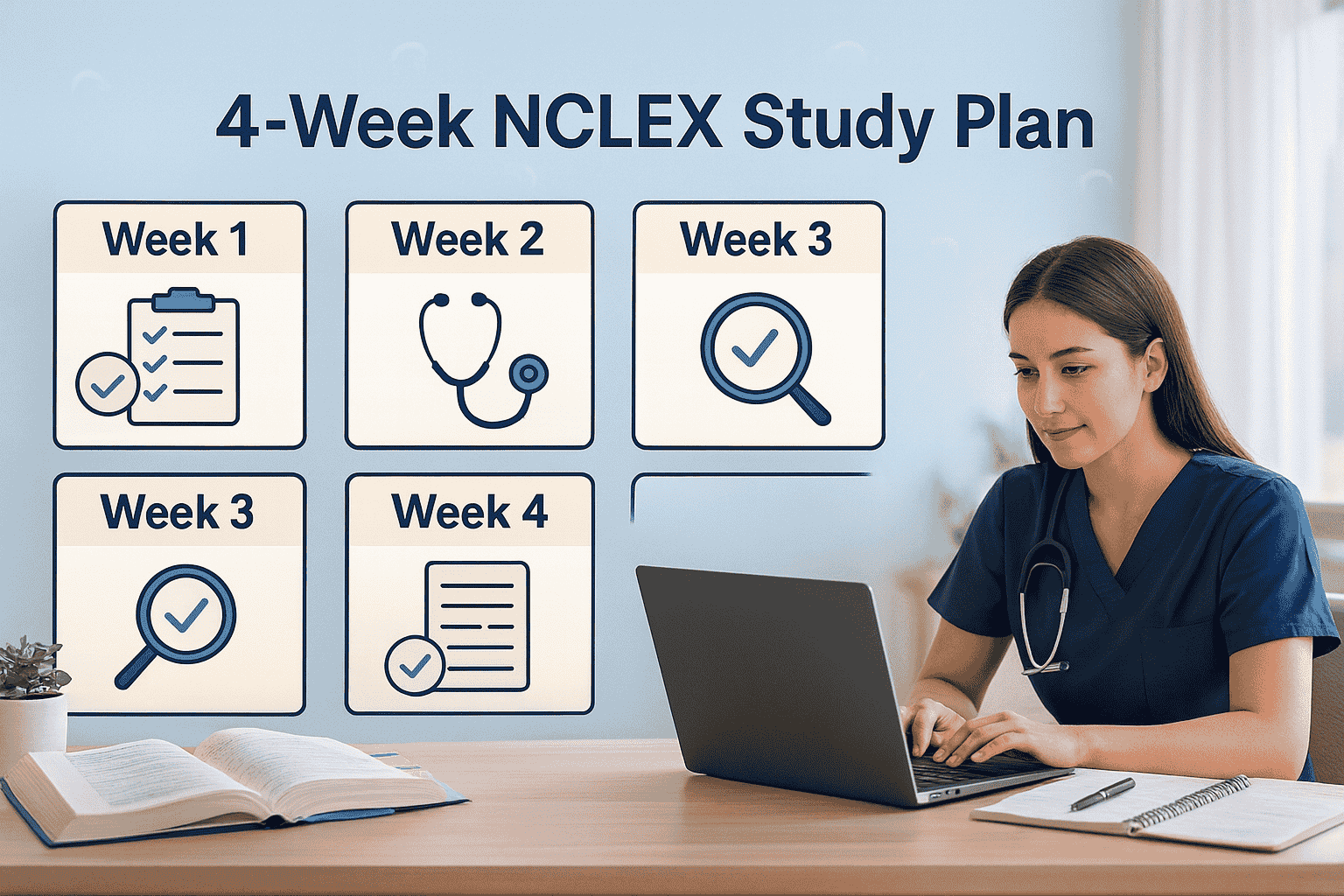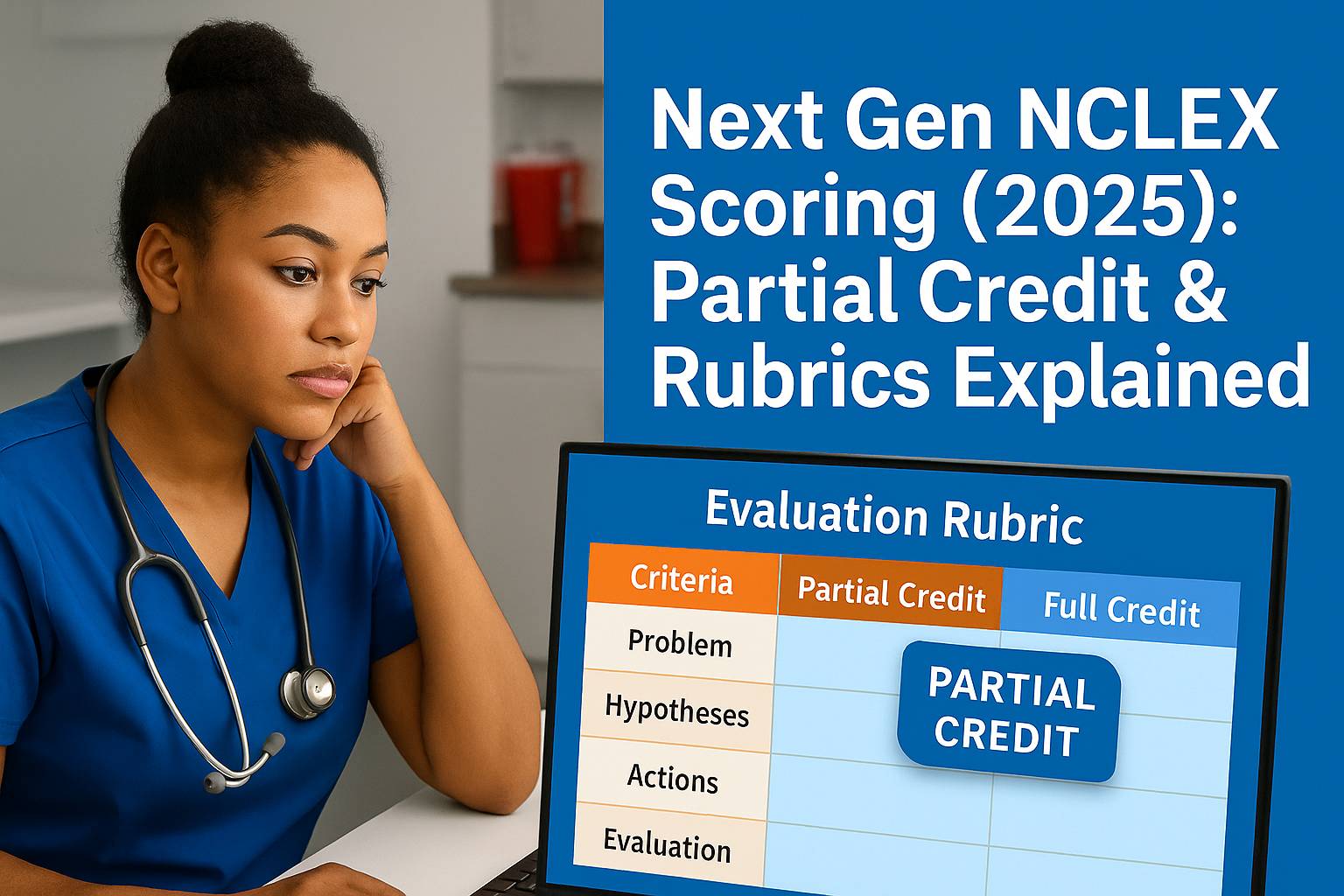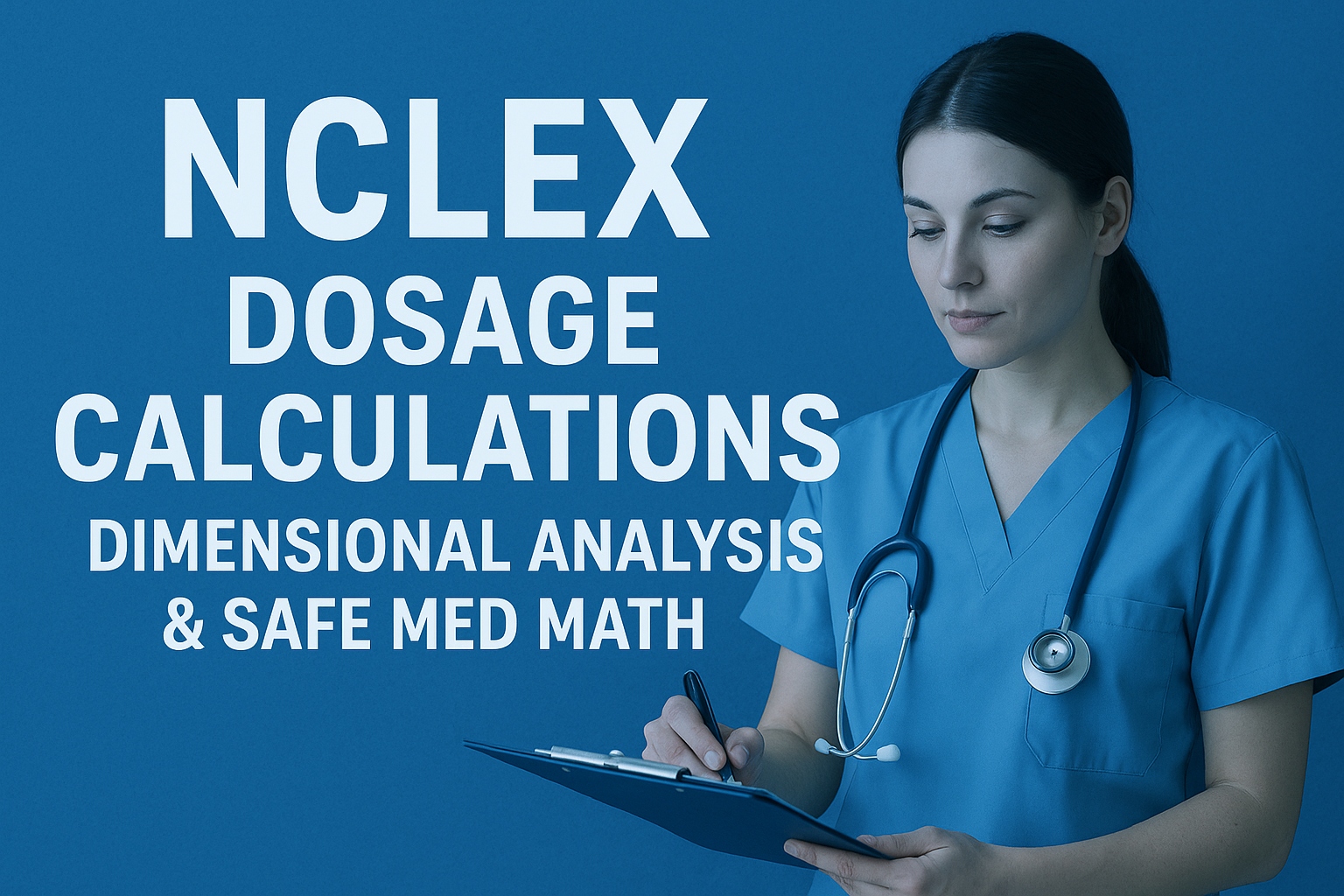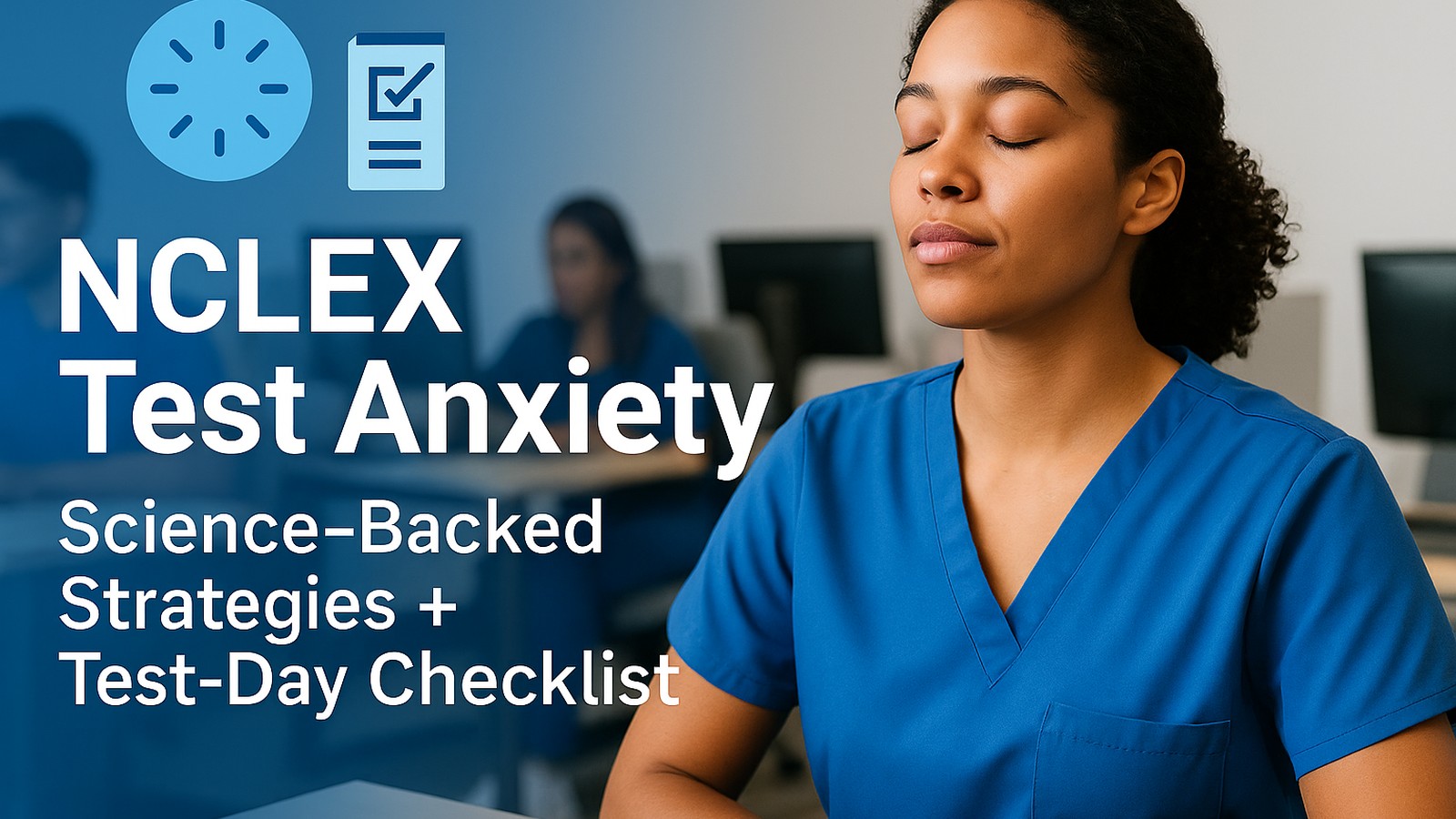Why NCLEX Pharmacology 2025 matters
The NCLEX-RN is a major milestone, and NCLEX pharmacology 2025 can make or break your score. New drugs and changing guidelines raise the stakes. This guide highlights high-yield drug classes, NCLEX-style questions, and fast strategies you can use on test day.
What the exam really tests
Pharmacology on NCLEX checks safe care, not just recall. Expect items that ask you to:
-
Explain drug actions and expected effects.
-
Spot interactions and contraindications.
-
Prioritize nursing interventions around meds.
-
Teach safety and adherence in plain language.
NCLEX Pharmacology 2025: Must-know topics
1) Cardiovascular
Key drugs: ACE inhibitors (-pril), ARBs (-sartan), beta-blockers (-lol), calcium-channel blockers, digoxin, diuretics.
Priorities:
-
Monitor BP/HR; hold beta-blockers for bradycardia per protocol.
-
Track K⁺: ACEi/ARB → hyperkalemia; loops → hypokalemia.
-
Digoxin toxicity: anorexia, N/V, vision changes; risk ↑ with low K⁺.
2) Respiratory
Key drugs: SABA (albuterol), LABA/ICS combos, inhaled steroids, leukotriene modifiers.
Priorities:
-
Watch SpO₂ and work of breathing.
-
Rinse mouth after ICS (↓ oral thrush).
-
SABA for relief, ICS for control.
3) Endocrine
Key drugs: Insulin (rapid/short/intermediate/long), oral hypoglycemics, levothyroxine.
Priorities:
-
Match insulin to meals; monitor glucose and K⁺ (insulin shifts K⁺).
-
Recognize hypo vs hyperglycemia quickly.
-
Levothyroxine: AM, empty stomach; watch tachycardia/heat intolerance.
4) Neuro / Psych
Key drugs: Anticonvulsants, levodopa/carbidopa, SSRIs/SNRIs, benzodiazepines.
Priorities:
-
Monitor sedation and mental status.
-
Early SSRI/SNRI: watch for worsening mood/suicidality.
-
Avoid abrupt benzo withdrawal.
5) Anti-infectives
Key drugs: Penicillins, cephalosporins, macrolides, fluoroquinolones, antifungals, antivirals.
Priorities:
-
Check allergies; note penicillin/cephalosporin cross-reactivity.
-
Watch C. diff / superinfection; complete the full course.
-
Assess renal function for dosing.
6) Pain management
Key drugs: Opioids, NSAIDs, acetaminophen, adjuvants.
Priorities:
-
Opioids: respiratory depression; keep naloxone available.
-
NSAIDs: GI bleed and renal risks.
-
Acetaminophen: max ~4 g/day adults (less with liver disease).
Helpful holders: Study Plan • Item Types • Cheat-Sheets
Sample NCLEX-style pharmacology questions (with quick rationales)
Q1. Lisinopril teaching (ACE inhibitor)
Which instruction is best?
A. Take on an empty stomach.
B. Monitor your blood pressure regularly. ✅
C. Increase potassium in your diet.
D. Stop if you have a cough.
Why: Tracking BP shows effectiveness. ACE-cough → call provider; do not stop on your own.
Q2. Albuterol effectiveness (SABA)
Which finding shows it worked?
A. More wheeze
B. Lower heart rate
C. Improved oxygen saturation ✅
D. Higher blood pressure
Why: Better ventilation → higher SpO₂ and easier breathing.
Q3. Insulin safety (DKA infusion)
Which labs are priority?
A. Calcium
B. Sodium
C. Potassium and blood glucose ✅
D. Hematocrit
Why: Insulin lowers glucose and shifts K⁺ into cells—monitor both.
Q4. Warfarin teaching
Which statement is correct?
A. I will double a missed dose.
B. I’ll eat more kale daily.
C. I’ll keep Vitamin K intake consistent and check my INR. ✅
D. I can stop labs when I feel well.
Why: Consistent Vit K + INR checks keep therapy therapeutic and safe.
Q5. Opioid risk
Which client needs the most caution?
A. Post-op day 2, stable
B. Chronic pain, opioid tolerant
C. COPD with CO₂ retention ✅
D. Migraine, otherwise healthy
Why: COPD + opioids ↑ risk for respiratory depression.
Keep practicing (holders): Item Types • Analysis & Prioritization • Partial-Credit Scoring
Test strategies for NCLEX pharmacology 2025
-
Read the stem twice. Similar drug names trap rushers.
-
Find the core task: safety, effect, or teaching.
-
Apply anchors: ABCs, stable vs unstable, expected vs unexpected.
-
Teach briefly: one key warning, one monitoring point, one clear action.
-
Eliminate the unsafe choice first; protect partial credit.
More holders: Study Plan • CAT Simulation • Analytics • Cheat-Sheets
Wrap-up
NCLEX pharmacology 2025 rewards safe, clear decisions. Focus on big classes, practice with realistic items, and use frameworks to pick the safest first action. With steady practice, pharmacology shifts from stressor to strength.
Next steps : Study Plan • Item Types • CAT Simulation • Signup
